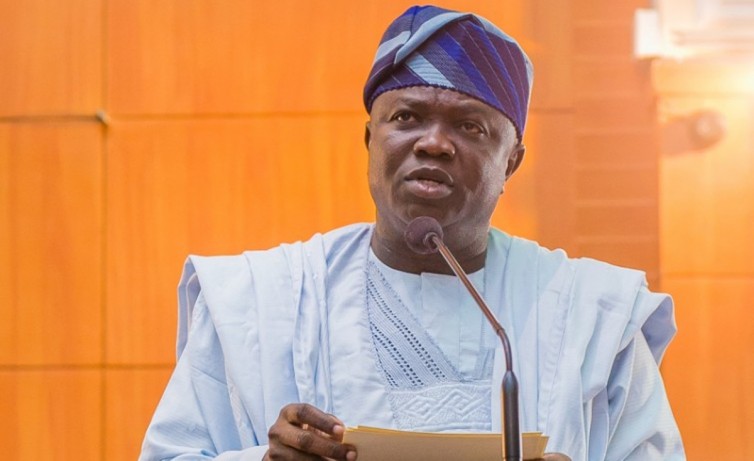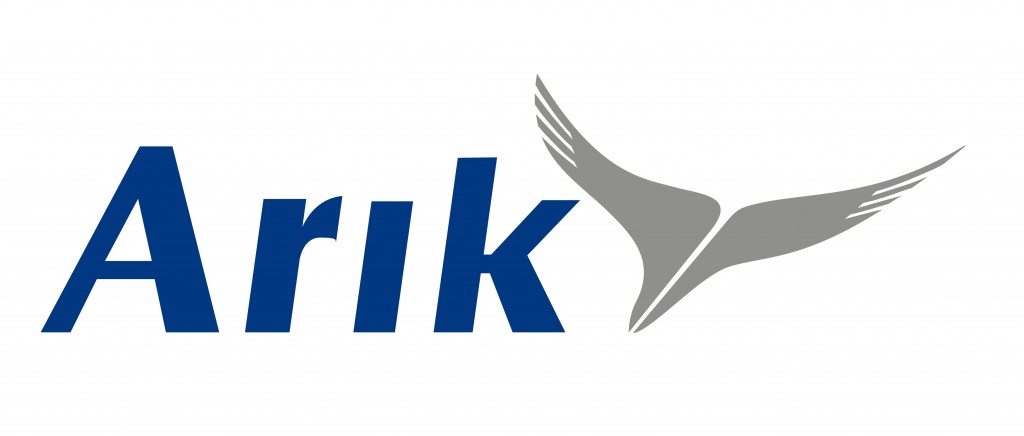News
Lagos Enhances Transit Payment System with EMV Contactless Card

Commuters on the Lagos Bus Rapid Transit (BRT) system can now board buses using a contact-less card payment system.
The system allows commuters who ride on BRT buses to make payments via their Lagos Connect contactless cards powered by Farepay that have either been pre-loaded or linked to a funded bank account.
Powered by Lagos State, LAMATA, Primero Transport Limited and Sterling Bank Plc, the enhanced electronic payment system was launched Thursday at the Sterling Bank, House, Marina, Lagos in partnership with leading global payment and technology companies – Mikroelektronica, MasterCard, E-Purse Systems, Monet Plus, NIBSS, Epay-plus and SecureID in Lagos.
The Europay MasterCard and Visa (EMV) compliant contactless payment system was designed to speed up commuting time by making payment easier and faster because it empowers commuters to just tap their cards on a console to board a BRT bus.
It eliminates the high turnaround time associated with cash-based ticket purchases. The launch of the contactless card puts Lagos ahead of some mega cities including New York in terms of implementation.
It will be recalled that Governor Ambode launched Lagos connect card last November and this enhancement will however be usable on mass transit systems anywhere in the world.
Abubakar Suleiman, Managing Director/Chief Executive Officer, Sterling Bank said the bank intended to achieve its primary role of financial intermediation through intervention in sectors that will create jobs and bring about economic growth for the country.
He identified such sectors as health, education, agriculture, renewable energy and transport. Abubakar stated that the bank was proud to collaborate with Lagos State, LAMATA, Primero, E-Purse Systems and MasterCard to launch a multimodal contactless payment card for use on mass transit buses, ferries and trains in the Lagos metropolis.
Chief Demola Seriki, Chairman, Primero Transport Limited, described the launch of the enhanced Lagos Connect EMV compliant contactless payment system powered by Farepay as symbolic. “We are delighted to unveil the enhanced Lagos Connect EMV compliant contactless payment system powered by Farepay. It is indicative of efforts to eliminate the inefficiencies associated with public transportation in Lagos.
A lot of work is being put into transforming public transportation into a world class and sustainable industry which brings comfort to commuters and creates economic and social opportunities.
“The BRT system was initiated by the Lagos State Government as part of the strategies to modernise the public transport system in Lagos to ensure it compares with what obtains in other major cities around the world.
What we are witnessing today is a major stride towards providing efficient service that will encourage patronage of the Bus Rapid Transit by middle class commuters thereby reducing the number of private vehicles on our roads.”
On her part, Omokehinde Adebanjo, Vice President and Area Business Head, West Africa, Mastercard said, “Technology has the potential to shape the way Africans live, and the importance of removing cash from key sectors remains a critical focus for Lagos State and the Federal Government of Nigeria.
The contactless solution has the potential of not only solving challenges faced by other channels of transport, but it can also be easily implemented in sectors such as retail and government services. This is an important step to creating a smarter Lagos, and a Nigeria that is less dependent on cash.”
News
EFCC Witness Admits Writing Off Arik Air’s $2.3M Debt Amid N76Bn Fraud Trial


News
Anambra Shines in 2025 E-Governance Rankings, Setting National Standards

Anambra State has once again demonstrated its leadership in digital transformation, emerging as one of Nigeria’s top three states in the 2025 e-Governance Report published by the Panorama CIAPS Governance Performance Index (CGPI).

According to the report — a collaborative effort between Nigerian Panorama and the Commonwealth Institute of Advanced Professional Studies (CIAPS) — Anambra ranks alongside Lagos and Enugu as the leading states in adopting and implementing e-governance practices that foster accountability, transparency, and improved service delivery.
In his remarks, Professor Anthony Kila, Director of CIAPS, emphasized the importance of e-governance in shaping how governments interact with citizens. “The centrality of e-governance allows us to assess the performance of state governments in the country. How the government treats the digital world says a lot about them,” he said.
The report evaluated states based on a comprehensive set of criteria, including website security, up-to-date content, public engagement, availability of online services, policy updates, and user accessibility. Anambra’s performance reflects the state’s deliberate investment in digital infrastructure and its commitment to leveraging technology as a tool for inclusive governance.
Reacting to the recognition, the Managing Director/CEO of the Anambra State ICT Agency, Chukwuemeka Fred Agbata, CFA, described the report as a welcome validation of the efforts being made under the leadership of Prof. Charles Chukwuma Soludo, CFR, to reposition Anambra as a liveable and prosperous smart mega-city.
“This is not just about being tech-savvy,” Agbata said. “It’s about using digital tools to create real impact — making the government more accessible, responsive, and transparent. Anambra is building a digital future that works for everyone.”
The CGPI Report recommended that all states intensify efforts to train public servants, maintain digital platforms effectively, and build user-friendly systems that keep citizens informed and empowered. For Anambra, this recognition serves both as a milestone and a motivation to scale new heights.
As the journey continues, Anambra remains focused on setting the pace for e-governance in Nigeria in line with the Governor’s mantra of Everything Technology & Technology Everywhere.
News
SERAP Urges National Assembly to Reject Tinubu’s $24Bn Loan Request Over Debt Concerns

Socio-Economic Rights and Accountability Project (SERAP) has urged the National Assembly to reject the Tinubu administration’s request to borrow $24 billion, warning that the move would significantly deepen Nigeria’s debt crisis.

In a statement posted on its official X account, the advocacy group warned that the proposed borrowing would raise Nigeria’s total debt stock to an estimated ₦183 trillion—an amount it described as “clearly not sustainable and not in the public interest.”
“The National Assembly must immediately refuse to approve the Tinubu administration’s request to borrow $24 billion,” the group said. “The growing national debt is not sustainable and not in the public interest.”
SERAP expressed concern over the heavy burden of debt servicing, which it said is already consuming a substantial portion of government revenue, leaving little room for critical public investment.
Nigeria’s total public debt is projected to surpass ₦180 trillion following the president’s latest loan request. The borrowing plan includes a proposal for over $21.5 billion in external loans, which equates to ₦33.39 trillion at the official exchange rate of ₦1,590 per dollar. The administration is also seeking approval for a domestic bond issuance worth ₦757.9 billion to settle outstanding pension liabilities.
President Tinubu said the 2025–2026 borrowing plan targets key sectors such as infrastructure, healthcare, education, water supply, security, and employment generation. He noted that the plan is also intended to cushion the economic impact of fuel subsidy removal.
The total loan request comprises $21.5 billion, €2.19 billion, and 15 billion Japanese Yen, alongside a €65 million grant. Tinubu assured lawmakers that the funds would be directed toward development projects across all 36 states and the Federal Capital Territory, with emphasis on rail networks, healthcare infrastructure, and poverty alleviation programs.
On pension-related borrowing, the president explained that the proposed bond issuance is aimed at clearing backlogs under the Contributory Pension Scheme. The measure, he added, has already received approval from the Federal Executive Council and is expected to improve retirees’ welfare, restore trust in the pension system, and inject liquidity into the economy.
Nigeria’s public debt has surged in recent years, rising by 48.6% in 2024 to ₦144.66 trillion—up from ₦97.34 trillion in 2023. The Federal Government accounts for 95% of that total.

 E-Financial2 days ago
E-Financial2 days agoEFCC Recovers over N20Bn Stolen by Hackers from 6 Banks in Nigeria

 Telecom2 days ago
Telecom2 days agoEngr. Ikechukwu Nnamani Receives Two Prestigious @ABoICT Awards

 Telecom2 days ago
Telecom2 days agoFG to Deploy 80 Percent of 7000 Telecom Towers to North

 E-Financial2 days ago
E-Financial2 days agoUBA Launches *919# Advance Top-Up Feature for Instant Access to Customers

 E-Financial2 days ago
E-Financial2 days agoPonzi Scheme Operators Risk N10m Penalty, Others- IST Chair

 News2 days ago
News2 days agoEFCC Recovers Funds, Arrests Suspects in N1.3 Trillion CBEX Crypto Fraud

 E-Financial2 days ago
E-Financial2 days agoCourt to Deliver Judgment in NIBSS’ Suit against CBN, Others over BVN Database Management

 General News2 days ago
General News2 days agoGoogle I/O 2025 Showcases Temu’s Innovations in Digital Shopping with Web UI Primitives
























